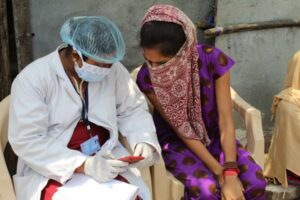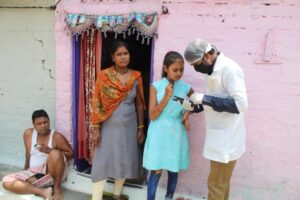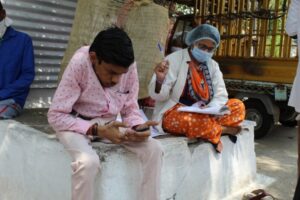Although Covid-19 is by no means the first pandemic to affect humans on a mass scale – bubonic plague, smallpox, and the Spanish flu are perhaps the most memorable past examples – both the spread of the virus and the ways in which we as a society have responded to it are very different because of the age in which we live. Where in the past the spread of a virus like Covid-19 might have been limited to a single area or country, modern technology, in this case in the form of international air travel, was responsible for both the rapid spread of the pandemic and its global reach. But, as many communities around the world now struggling with the virus are discovering, technology can also provide solutions to problems caused by the pandemic, both medical and social. In the long term we are putting our trust in medical science deliver a vaccine for the disease, but technology is also responsible for the ways in which we are adapting to life during lock-down until that happens. Platforms such as WhatsApp, Skype and Zoom, have become the new default means of socialising for those who can access them, and are helping people to feel that they are staying connected with a wider community. But, perhaps more crucially for places like Bhopal, the wide availability of smartphones and improved internet coverage make it possible to communicate and share information more widely than ever before, and the community’s use of these tools is helping to stem the spread of Covid-19 and save lives on a daily basis.

In Bhopal in particular, the vulnerability of gas survivors, coupled with the lack of infrastructure and absence of immediate government response, has necessitated a community-based response to the pandemic, led by NGO’s such as our own Sambhavna clinic and the survivor organisations in the city. Together they have been able to utilise technology, in particular smartphones and WhatsApp groups, to incredible effect. A community volunteer program has been setup throughout the districts surrounding the abandoned Union Carbide factory, and access to smartphones has allowed medical staff and trained volunteers to relay vital information on the ground.

Mere days after the national lock-down in India was announced, the Sambhavna staff and leaders of the four major survivor organisations in the city setup a WhatsApp network for use by the community. Within a week the group had registered more than 50,000 members, a number that is still growing everyday. The group is used to share information and updates about the spread of Covid-19, as well as advice on how to identify symptoms and safety measures such as correct hand-washing technique and how to socially isolate. Members of the community can also report symptoms directly on the group, and will then receive a visit from a local volunteer to determine whether they require a further visit from a medical professional or immediate hospitalisation. Those without access to food, water, medicine, or other vital supplies can also request support and receive deliveries from volunteers and members of the clinics.

As well as being used by members of the community to report symptoms and receive care, smartphones are also being used by medical staff and volunteers on home visits to take notes, register vulnerable patients and send information on to emergency responders. Data collection and accurate tracking of statistics are essential for monitoring and keeping ahead of the spread of Covid-19, and in the absence of available government resources the survivor community in Bhopal have taken it upon themselves to collect and share that data. The Sambhavna clinic has already registered more than 10,000 individuals through door-to-door visits, identifying potentially vulnerable individuals and referring them to local government administration for relocation to safe spaces for those who are unable to self-isolate at home. The Madhya Pradesh state government has now agreed to work with Sambhavna and survivor groups in the city on an agreed action plan to safeguard the survivor community, and technology and communication will continue to play a vital role in that process. The foresight, ingenuity and community-mindedness displayed by the people of Bhopal these past months is truly incredible, and we hope it will help to inspire other communities around the world.


